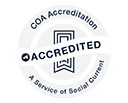How to Prevent Child Sexual Abuse
Child sexual abuse is any sexual activity with a child. Child sexual abuse can be perpetrated by an adult or by a child who exerts power over another child. Sexual activity can be touching or non-touching actions and may include: fondling, rape, incest, sexual talk, voyeurism (watching), exhibitionism (showing), pornography or internet crimes. Sexual abuse is illegal in all 50 states.
One out of four girls and one out of six boys are sexually abused before they are 18 years old. One-third of all victims reported are under the age of 12, and one in five children is sexually solicited while on the internet. Most children who are sexually abused are abused by someone they or their family know, love or trust.
Signs of sexual abuse
Many children who are sexually abused never tell anyone about the abuse, and many children who have been sexually abused show no physical signs at all.
When physical signs are present they may include:
- Difficulty walking or sitting.
- Redness, rashes, bleeding or pain in the genital or anal areas.
- Frequent bladder or urinary tract infections.
- Painful bowel movements.
- Frequent headaches or stomachaches.
- Sexually transmitted diseases.
- Pregnancy.
Children who have been sexually abused may experience feelings of guilt, shame, fear, betrayal, confusion, embarrassment, anger and depression. A child victim of sexual abuse may:
- Experience a sudden change in behavior or personality.
- Become depressed or anxious.
- Withdraw from family, friends or activities.
- Act aggressively.
- Show a sudden fear of certain people, places or activities.
- Begin having difficulties at school.
- Act younger than his age (regressing) such as wetting his bed or sucking his thumb.
- Start having nightmares or other sleep problems.
- Act out sexually, showing sexual knowledge beyond what is normal for her age, sexual play with toys, self or others.
- Engaging in self-destructive behaviors such as alcohol or drug use, eating disorders, or cutting himself.
Need help or want to know more?
For more information, read Prevent Child Abuse Illinois’ publication Child Sexual Abuse: Raising Awareness and Protecting Children.
For a list of local Child Advocacy Centers that help in the investigation of child sexual abuse, visit the Children’s Advocacy Centers of Illinois website or call 217-528-2224.


 312-814-6800
312-814-6800